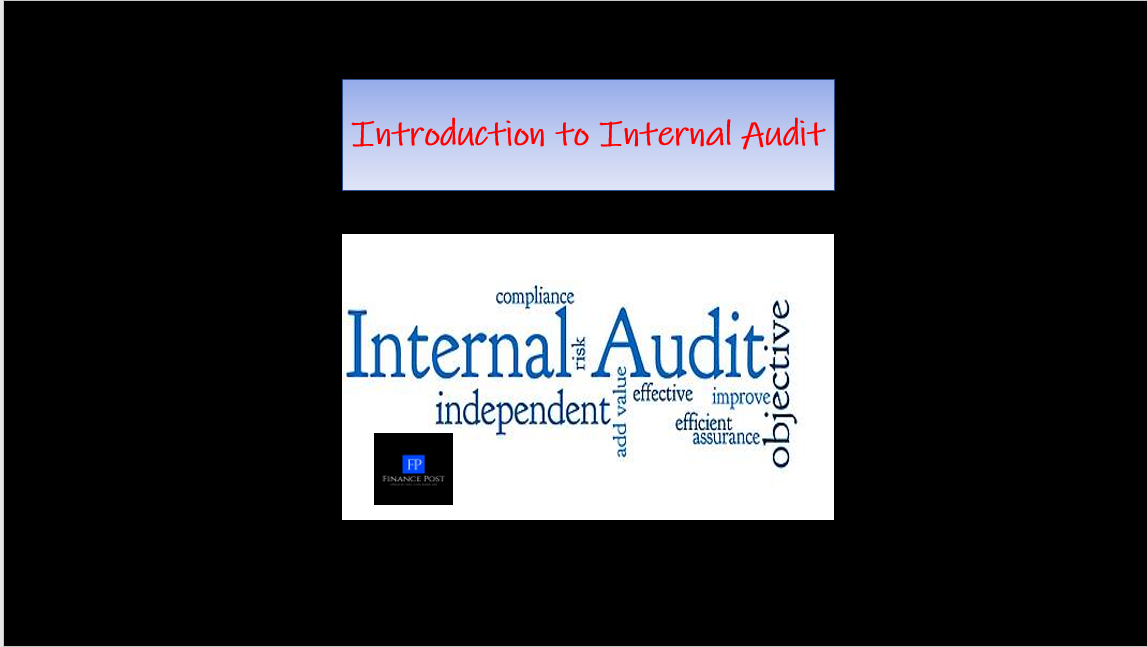
Last updated on May 15th, 2021 at 09:28 pm
Introduction to Internal Audit
Introduction
Internal audit is an independent function carried on with an objective of
- providing assurance over the internal controls, quality of operations and
- a consulting activity to add value to an organization’s operations.
It’s a basic duty of an internal auditor to provide independent assurance over the effective operation of an organization’s risk management, governance, and internal control processes. Internal Audit is an important function in an organization as it ensures the effectiveness of operational processes.
Is internal audit mandatory?
Section 138 of the Companies Act, 2013 mandatorily requires the appointment of internal auditors for Listed/unlisted and public/private or a certain class of companies.
Further, Rule 13 of Companies (Accounts) Rules, 2014 requires the following entities to mandatorily appoint an internal auditor.
- All Listed companies
- Unlisted public companies
- with the share capital of Rs 50 crores or more in the previous financial year OR
- with the turnover of Rs 200 crores or more in the previous financial year OR
- with borrowings outstanding of Rs 100 crores or more at any point in the previous financial year
- with outstanding deposits of Rs 25 crores or more at any point in the previous financial year
- Private limited companies
- with the turnover of Rs 200 crores or more in the previous financial year OR
- with borrowings outstanding of Rs 100 crores or more at any point in the previous financial year
Who can be appointed as an internal auditor?
As per the Companies Act, an internal auditor can be either be
a chartered accountant or
a cost accountant or
such other professionals as may be decided by the Board to conduct the internal audit of the company.
Rule 13 further clarifies that an internal auditor can be an individual, a partnership firm, or a body corporate.
An internal auditor may or may not be an employee of the Company.
What are the primary functions of an internal auditor?
Internal auditors are engaged in activities that are fundamental to the survival and prosperity of the organizations. Internal auditors ensure that the internal controls are in place. Hence, as an internal auditor, one should provide attention to:
- Policy frameworks and compliance with the policies to ensure the quality
- Internal controls are in place and identify gaps; if any
- Assessing risk areas and management of risks
- Evaluating process controls and identifying improvement measures
- Advising managers at all levels for improvement in operational efficiency
- Detection and prevention of frauds
- Quality of governance and concern areas
Though an internal auditor is generally viewed as a finance professional, in practice, an internal auditor’s role is wide-ranged. He is responsible for the operational effectiveness and hence reviews, interacts, evaluates, and advises managers at all levels (including top management). An auditor along with guidance from the Board of directors decides an Audit Plan.
Internal Auditor v/s External Auditor
Many people feel that the role of an internal auditor is not necessary when an external or statutory auditor is appointed. However, that’s not true. The primary objective of an internal auditor is different from that of an external auditor. The basic difference between internal and external auditor is highlighted below:
Objective: The objective of the Statutory auditor is to add credibility and reliability to financial reports of the company to its stakeholders by giving an opinion on the report. The internal auditor, on the other hand, evaluates and improves the effectiveness of governance, risk management, and control processes. This provides assurance to the board members and senior management that help them to fulfill their duties towards the organization and its stakeholders.
Coverage: A statutory auditor provides opinions on financial statements and financial risk. An internal auditor covers all categories of risk, their management, including reporting on them.
Reports to: External Auditor reports to shareholders or members who are outside the organization’s governance structure. Internal Auditor reports to the Board / Audit Committee and senior management who are within the organization’s governance structure.
Responsibility for improvement: Statutory Auditor is responsible to provide his opinion on the financial statements. He is not directly responsible for any improvement in the organization as a whole. “Improvements” is a fundamental objective of internal auditing. it is done by advising, coaching, and facilitating in order to not undermine the responsibility of management.
Other important points
As per section 141 of the Companies Act, 2013 any person who is rendering the service of Internal Audit is disqualified to be appointed as the Statutory Auditor of the Company.
In September 2018, ICAI also notified that Internal Auditor cannot undertake Goods and Service Tax (GST) Audit simultaneously.
Framework for internal audit: The Institute of Chartered Accountants of India (ICAI) constituted the “Internal Audit Standards Board” (IASB) which reviews the internal audit processes across the globe and formulates Standards on Internal Audit (SIA) and Guidance Notes in this regard. These are available on the ICAI website.
Conclusion
Hence for large corporate entities, engage in internal auditors as a best practice. At the same time, Many feel that once the financial statements are audited by an external auditor, the need for an internal auditor is unnecessary. However, the role of an internal auditor is different than that of an external auditor.
For reference: Extract of Rule 13 of Companies (Accounts) Rules, 2014

- How to do a transaction in Digital Rupee (CBDC-R)? – A Step by step Guide - 10/12/2022
- Can you rectify your 26AS? - 20/09/2022
- Tax implications on Cashback - 09/09/2022
Disclaimer: The above content is for general info purpose only and does not constitute professional advice. The author/ website will not be liable for any inaccurate / incomplete information and any reliance you place on the content is strictly at your risk.
Follow us on Social Media by clicking below
Follow @financepost_in
Be the first to comment